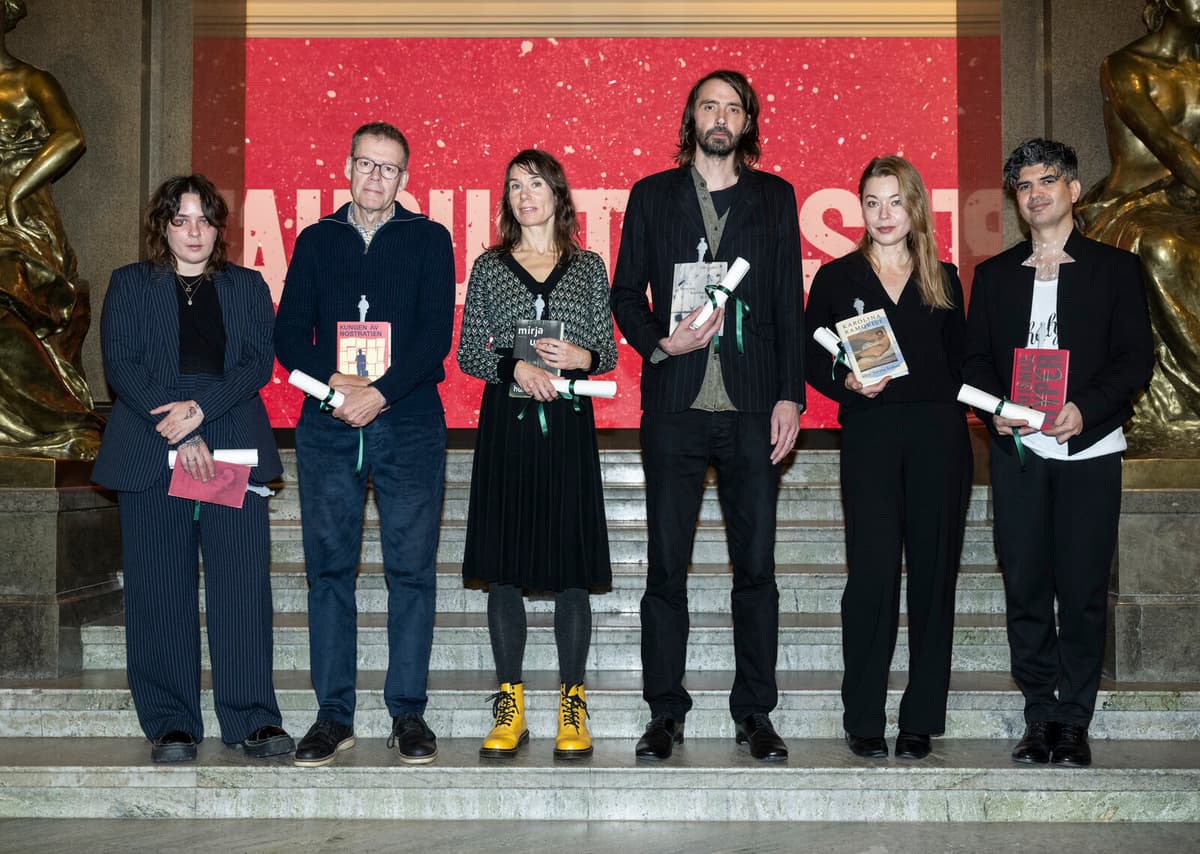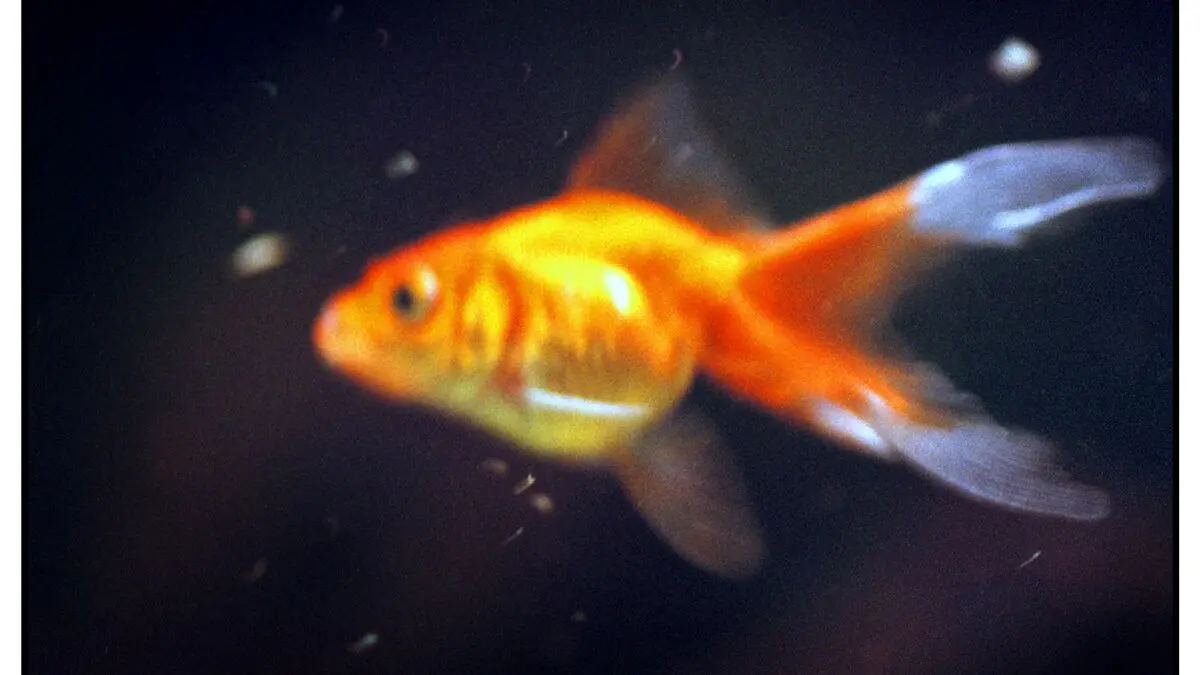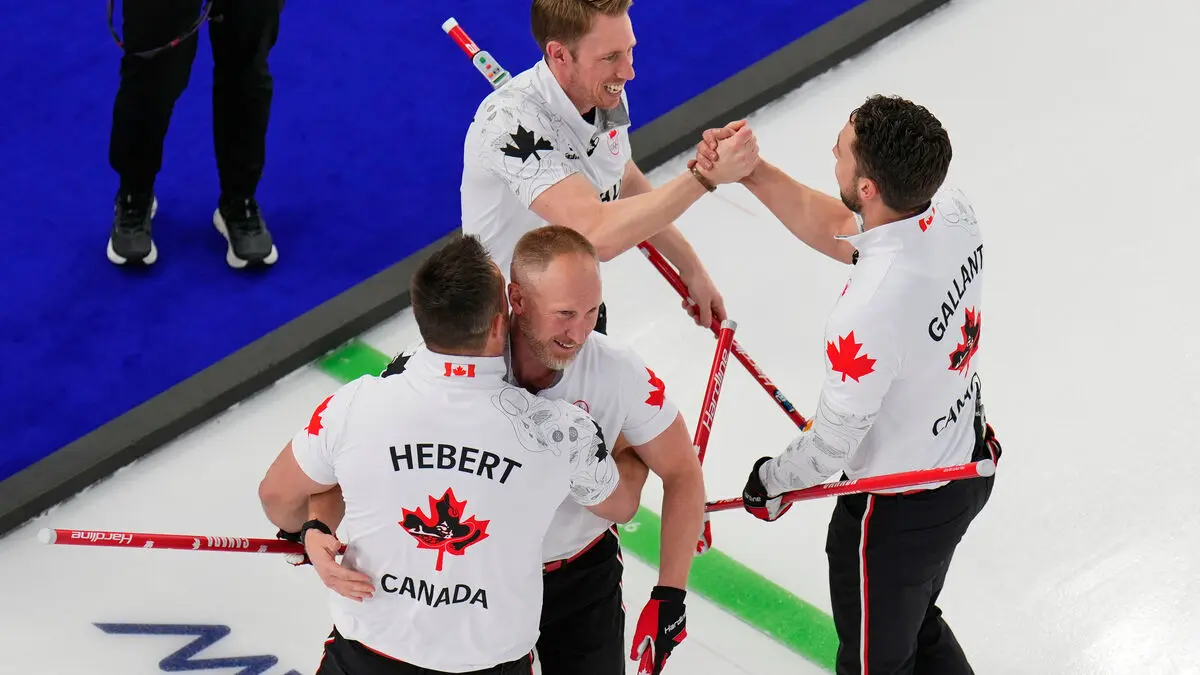The nomination surprises Agri Ismaïl, who in the novel writes about a Kurdish family's disintegration during a period of economic crisis. He does it by letting the family make visible the abstract movements of capital in the world.
I thought the subject was fairly narrow, so this is incredibly cool and makes me reevaluate what I think about things. What may seem dull on paper may not be, says Agri Ismaïl.
He also emphasizes that there is no typical August Prize winner – both narrow and more commercially viable books have been awarded. This year, poetry has taken a larger place, with poetry collections by Hanna Rajs and Linus Gårdfeldt. Themes around rural areas and exclusion are also highlighted with poetic humor.
Black Humor
Poetry also characterizes Mirja Unge's "Hundnätter", which takes place in a depopulated rural area. The main character returns to her hometown, where she was subjected to sexual abuse as a teenager, and where similar events are now being silenced.
I often hear that I write darkly, but I think there is black humor. I play with language and really enjoy the lyrical, the rhythm, and poetry. I've been able to indulge in ladybugs, flies, eczema, and stubble – many small details that build up this world, says Unge.
Klara Bartilsson also writes poetically and humorously about exclusion in the children's book "Barrbarnet". The main character Barrbro represents the odd ones who try to take a place, but the book focuses even more on those who treat her insensitively. The message is: don't underestimate the importance of a hug.
Sometimes it takes very little for someone to feel welcome, says she.
Power and Relationships
Karolina Ramqvist has had to wait until her seventh novel, "The First Book", for a nomination. There, she portrays how a love story on Jamaica is marked by colonial power relations. Readers have described how the book "transports them somewhere" – a need she recognizes.
I think we want to be in something concentrated for a while, there's something valuable in reading, says she.
Power and relationships are also in focus in "The Secret Letters. The Political Family and Everyday Conversations", where a correspondence between Alva, Gunnar, and Jan Myrdal is published. Janken Myrdal thinks that his father's story about his mother Alva Myrdal has been used as an argument against the welfare state.
We have changed our view of my grandmother. We have taken a weapon out of the right-wing's hands, says he.
This Year's Fiction Book
"Brother, Crab, and Lädret" by Linus Gårdfeldt
"Hyper" by Agri Ismaïl
"Same, Mom" by Hanna Rajs
"The First Book" by Karolina Ramqvist
"The King of Nostratien" by Tony Samuelsson,
"Hundnätter" by Mirja Unge
.
This Year's Non-Fiction Book
"Captured Fates. Thieves and Swindlers in 19th-Century Sweden" by Bonnie Clementsson
"The Secret Letters. The Political Family and Everyday Conversations" by Kaj Fölster, Bosse Lindquist, Janken Myrdal
"Oland. Sweden's Forgotten Hollywood Star" by Kim Khavar Fahlstedt
"A Life Worth Living. Why Suicide Became Humanity's Companion" by Christian Rück
"Every Bite is a Thought. Swedish Food Culture over 800 Years" by Richard Tellström
"The Forest. In Folklore, Legends, and Sagas" by Tora Wall
.
This Year's Children's and Young Adult Book
"Barrbarnet" by Klara Bartilsson
"A Jungle Saga" by Jenny Bergman & Lotta Geffenblad
"Chop Chop. A Brave Earthling's Story" by Linda Bondestam
"Brother's Friend Robban" by Maja Hjertzell & Joanna Hellgren
"Without Passing Go" by Lova Lakso
"No One but Me" by Sara Lundberg
.
The Little August Prize
"The Tulips are Dead" by Sofia Blomqvist
"Ashran and the Star Circle: Childhood" by Alexander Elliot Borell
"Babyland" by Lykke Eder-Ekman
"The Pines" by Hedvig Halldenius
"Desert Swindle" by Marcus Hägglund
"The Unknown Biographies" by Noel Malmsten






